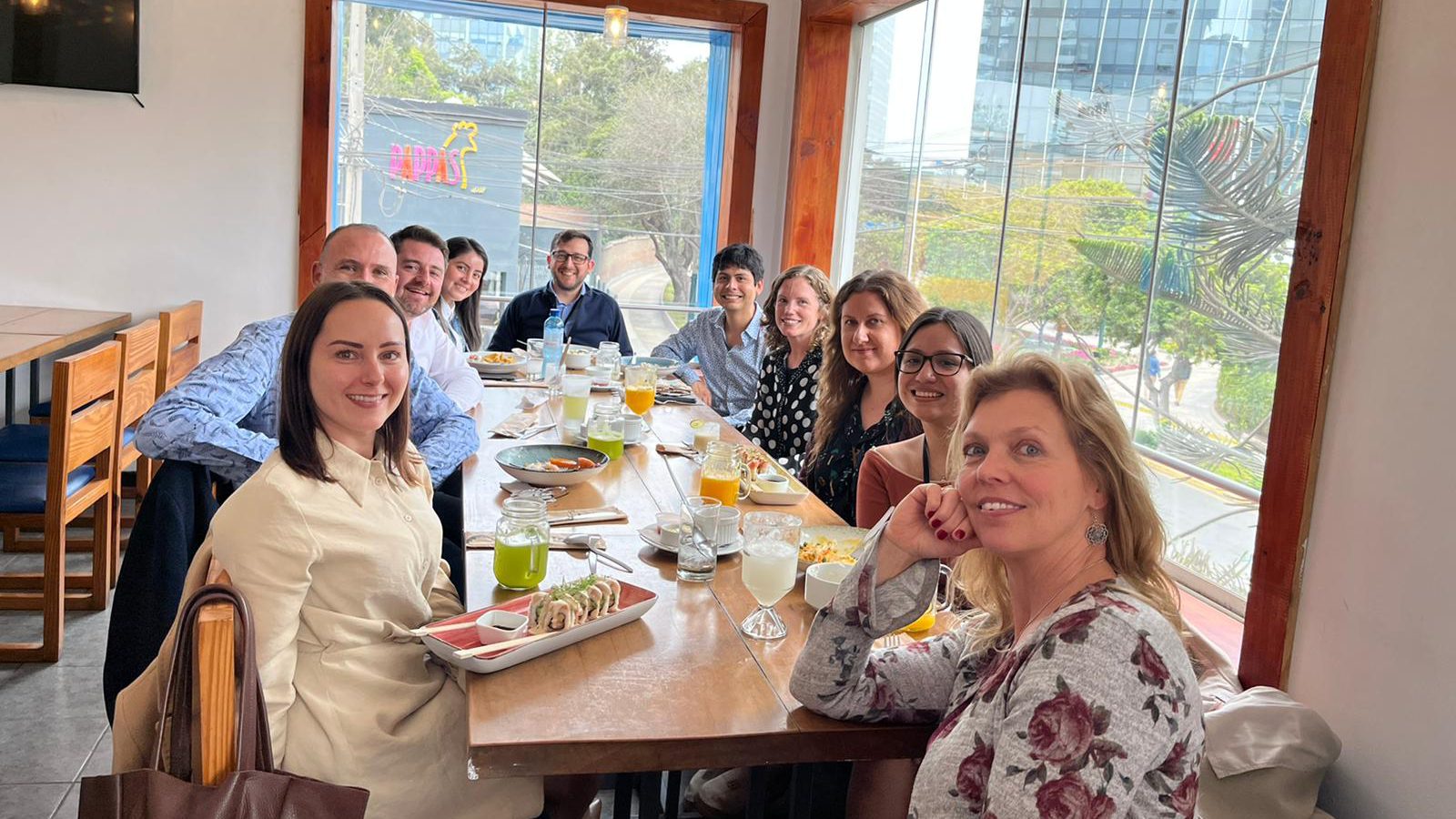How to share knowledge and motivate learning in an organization? All organisations are different, but same principles can be found from organisations that support learning activities – by supporting continuous development of employees, it will enhance the development of the organisation. Knowledge transfer is an important part of learning organisation, but what is the purpose of it and how can the education sector benefit of it?
A great example of Polar Partners’ work in knowledge transfer is Bicentennial school program in Peru. The Bicentennial school program is the first special public investment project of Peruvian Ministry of Education in the education sector. As part of Koulu consortium’s project scope, in addition to the 75 schools being built or reconstructed, the consortium transfers knowledge about international best practices of operating a large scale school infrastructure programs to our client PEIP-EB (Proyecto Especial de Inversión Publica – Escuelas Bicentenario).
Knowledge management could be described as a way to create, share, structure, use and manage knowledge in an organisation. Knowledge is one of the most valuable assets of companies as well as how information can be found and where. When knowledge management models are followed, it can increase communication and collaboration and reduce information search time and raise organisation-wide productivity.
“Knowledge management is about making the right knowledge available to the right people and at the right time. In this program knowledge is being transferred in a way that the information shared is aligned to each program stage. International best practices of operating school infrastructure programs are being transmitted from Koulu consortium to the public servants of PEIP-EB with formal training program, social learning activities and supporting the on-the-job learning.”
Senni Muiniekka, Knowledge Transfer Lead located in Lima, Peru
On-the-job learning is the most significant part of professional development
One way to look at knowledge transfer is 70-20-10 learning model. It gives a proportional breakdown of how adults learn and develop their professional capabilities effectively in a workplace setting. Actually only 10% is learned by studying in a formal way, as the most learning happens through collaborating and sharing expertise with co-workers and in the flow of work – practical experiences, team learning, feedback, and self-evaluation. In Peru, Knowledge transfer team has created a Knowledge management strategy and plan with all guidelines, processes and practical implications each knowledge transfer activity and how to measure them.
70-20-10 learning model is a framework for structuring the organisational learning and it includes:

- 10% formal training: learning comes from attending to a seminar, training or courses online in LMS, onsite in university or some other training provider. Learning can be self-paced such as reading a professional book or listening to a podcast.
- 20% social learning: sharing knowledge and solving problems with colleagues for example in a workshop, a session lead by an expert, in a learning café – structured session with a topic.
- 70% learning by doing: applying the new knowledge in daily work, start in a new role, creating new solutions, getting feedback and reflecting own learning.
In Koulu, knowledge transfer activities are managed by a team but activities are cross-cutting all different areas in the program such as project management, stakeholder management or technical assurance. All program disciplines are responsible for transferring their knowledge. For every Koulu team there’s a mirroring team in the client organization learning international best practices via working with Koulu’s experts. As part of the formal training plan, Koulu will launch approximately 120 internal training courses over the two-year-project with additional training courses from external education providers. In addition Koulu, together with the client, organised hundreds of hours social learning activities, manages virtual Communities of practice (Cop) community for discussion and support in other activities. All activities are defined according to client’s specific needs. Koulu has also co-created learning paths for client’s different employee profiles for future professional development.
Sharing expertise and knowledge in this program consist of all elements of 70-20-10 model, even if the focus often goes to the formal training which is many times the most easiest to monitor. Participating to training courses is important when building up personal knowledge, but even more important is to learn by doing and apply new knowledge into work and reflect it with peers – which is the core of the on-the-job learning. Quite often studying lacks the experience of creating something new or using the new knowledge in practice. Good example is languages; if you don’t speak the language you have studied, it will be forgotten.
Without implementation, tacit knowledge and lessons learned that come with experience remain unlearned. The hardest but also the most important part is to activate learning by doing – to take models, tools and new skills into practice. One example of the 70% learning, can be for example to provide regular feedback from managers or peers to employees to develop their ways of working or create practices that enable job-shadowing so newbies can learn from the more experienced co-workers. There might be also practices that support dialogue and sharing success stories and failures, which are normal to happen all of us – we should allow each other to make mistakes without shame. These are some of the ways how the organization supports social learning and on-the-job learning, and these practices we are currently co-creating with our client in Peru“,
Senni Muiniekka explains.

Polar Partners helps schools and organizations to evolve
Knowledge management is already a basic function in many international organizations. This can be seen also as a wider topic than just supporting employees to develop professionally – it also means how to capture all knowledge the employees have about the company. Does the organization collect best practices, lessons learned or do the senior and junior employees collaborate and share knowledge? Or can important documents be found from SharePoint?
Knowledge management helps to find the best ways to store, share and make knowledge available by creating collaborative structures with supporting technology. Easy way to think about knowledge transfer is to think about an employee who has been working in an organization for tens of year and is now about to retire. How to capture and save all tacit and explicit knowledge this person has?
Future organizations learn and develop by involving their employees. For organizations to develop, discussion, experiments and sharing knowledge are required – after all, knowledge transfer is the core of organization’s operations, not just a single function. To motivate employees, there needs to be a fundamental change in the operating culture and strong support of learning from the management.
The local cultural context really affects how efficiently knowledge can be shared and how easily different knowledge management and knowledge transfer practices can be taken into use in the organization. As part of the program in Peru, we are also transferring knowledge related to soft skills such as communication, coaching and feedback which are needed in order to facilitate social learning activities such as workshops, café session and overall organisation’s culture creation“
says Senni Muiniekka.
With the knowledge management expertise, Polar Partners is also implementing new practices to school development projects. Traditionally schools are seen as siloed units with teachers who work alone and barely share and co-create teaching practices. Information is scattered and there is less time for personal development. One way to create sustainable school culture and engage teachers to the school development activities is to involve them to the development and co-creation. Our team has a great pedagogical competence and experience in developing education, it is a natural step for us to bring the expertise of knowledge management and how to create sustainable and innovative learning organisation models to schools.
With a positive and curious approach, right models and tools and enough time, every organisation can start to create learning-focused culture.
